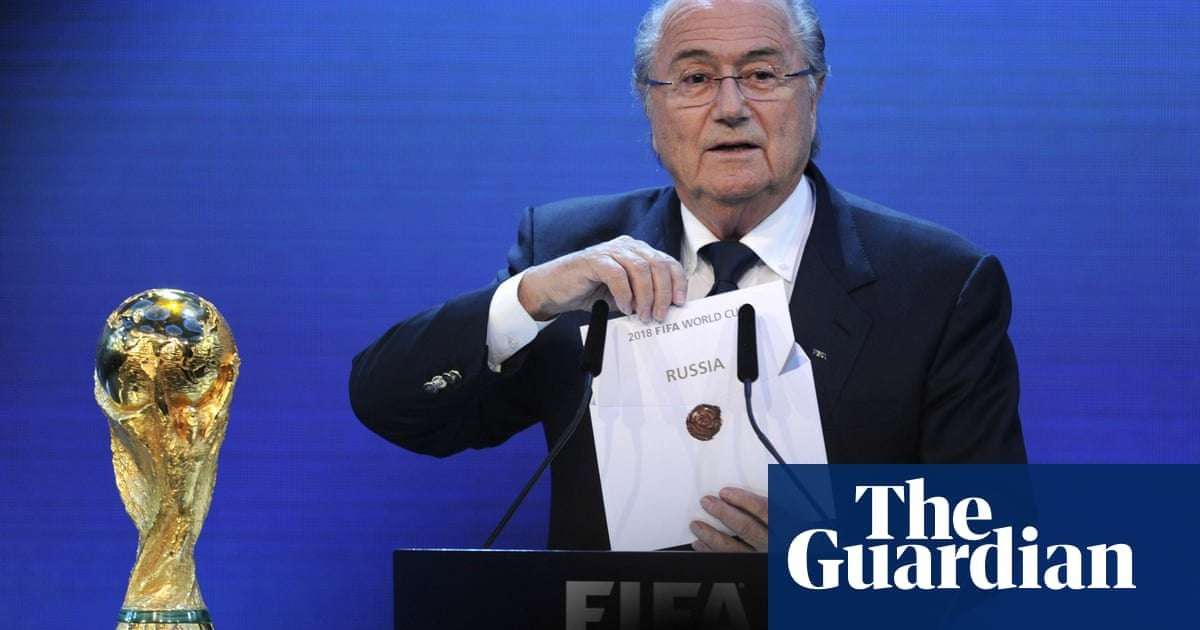Anonymous Telegram account indicates emails for sale after reports emerge of dossier on how to bribe Fifa officials
An anonymously run Telegram account has indicated that it wants to sell a tranche of emails relating to Russia’s 2018 World Cup bid, after reports that they contain a dossier compiled by Russian officials on how to bribe Fifa executive council members.
The existence of the emails was first reported by the investigative website the Insider. According to the Insider, the emails suggest that an aide to the former footballer Franz Beckenbauer promised to deliver his vote in exchange for “generous compensation for his consulting services”, later specified as at least €3m.
A Cypriot Fifa executive’s vote could be bought for €1.5m, and the former Fifa vice-president Jack Warner would vote for “whoever offers him the most”, the Insider report says.
The dossier also reportedly contains extensive background information about the council members, and even includes psychological profiles. It reportedly said the British football executive Geoff Thompson could be swayed through “diplomatic channels [and] expensive gifts to his wife, who has a strong influence on him”.
There is no suggestion that the Russian officials acted on the dossier, nor of any wrongdoing by those named. Thompson, who was at the time the head of England’s rival World Cup bid, has denied his wife was offered any gifts.
Warner has been banned for life by Fifa’s ethics committee, and Sepp Blatter and the former France captain Michel Platini, who are both profiled in the dossier, each received an eight-year ban from football in 2011.
The emails purportedly come from the account of Sergei Kapkov, a Russian politician and former head of the country’s national football academy, and are in the possession of an anonymously run Telegram channel called BlackMirror.
In an email exchange, BlackMirror told the Guardian that it released the “samples” in order to stimulate interest from potential “acquirers”.
The email containing the dossier was allegedly sent in March 2010 by Alexander Djordjadze, the head of the Russia 2018 organising committee, nine months before Fifa’s executive council delivered the 2018 tournament to Russia in a secret ballot. According to the Insider, it was sent to Igor Shuvalov, then a deputy prime minister under Vladimir Putin, Arkady Dvorkovich, an aide to the then-president Dmitry Medvedev, and Kapkov, who later became the head of Moscow’s culture department.
Fifa opened an investigation in 2014, but ultimately decided there was not enough evidence of bribery to re-run the vote. Fifa’s head judge in the inquest noted that it had limited access to potential evidence and that the computers used by the Russian bid team had been destroyed after the vote.
The emails were purportedly stolen from Kapkov, who left the government in 2015. Screenshots of the emails were released on the BlackMirror Telegram channel.
Reached by the Guardian, the person or people behind the account avoided saying directly that they were selling the emails for money, writing instead that they would discuss “conditions” to “transfer” the archive with “potential acquirers.” BlackMirror said it didn’t have any personal reaction to the information revealed in the emails.
BlackMirror did not immediately say what price it wanted for the emails, but prices for similar archives can cost tens of thousands of pounds. In 2016, the hacking group Anonymous International reportedly requested 100 bitcoin, then about £43,000, for emails purportedly from Kapkov’s account. It is unclear whether the two sets of emails are connected, although BlackMirror said it has emails dated up to 2019, indicating more recent access to Kapkov’s account.
Asked how it had come into possession of the emails, BlackMirror said: “We don’t discuss technical questions.”
BlackMirror said it was already considering another “release” of files, likely not related to Russia’s World Cup bid.
The Insider said it had received originals from BlackMirror of the files allegedly shared between Kapkov and powerful Russian officials.
Besides the dossier, they include strategy documents for a wide-reaching influence campaign among the 2018 World Cup organising committee and even large sponsors of the sporting organisation.
Alexei Sorokin, the head of Russia’s 2018 bid team, told the RBC news outlet that the documents were fake and that there was never any dossier of Fifa executive committee members.
“It’s nonsense,” he said, adding that Kapkov took no part in the bid process. “It seems to me that the whole thing was fabricated from beginning to end.”
He also noted that Russia had answered questions during an “official investigation” into the vote and said that “all of our ‘influence’ came during open contacts”.

KiloEchoNiner on November 1st, 2019 at 12:46 UTC »
Step 1: Offer FIFA money
Step 2: They take it.
Step 3: ????
Step 4: Profit!!!
sthlmsoul on November 1st, 2019 at 10:51 UTC »
Russia bribed FIFA? That's unpossible! Next thing you'll say Qatar did the same too...
un0m on November 1st, 2019 at 09:36 UTC »
Probably an insider who has access to the emails. They're gonna lose their job if they get exposed so they need the money.